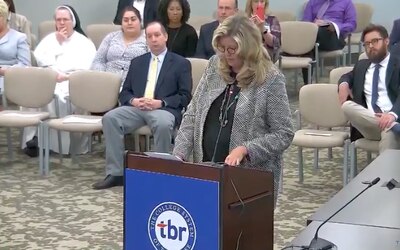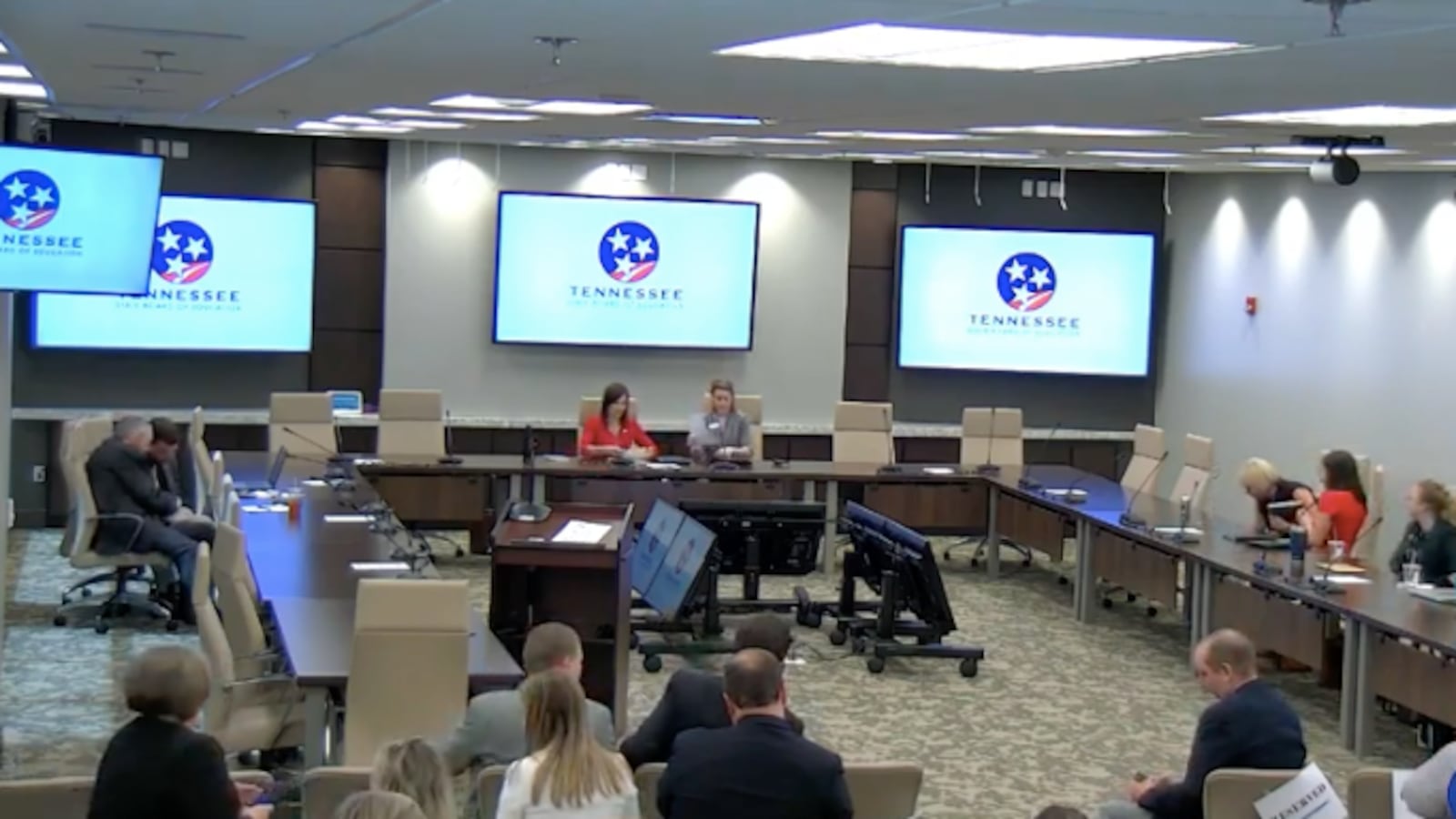Three pro-voucher groups want state officials to clarify a proposed rule regarding background checks for employees at private schools accepting taxpayer money to pay for tuition.
Leaders of the Tennessee-based Beacon Center, the Florida-based ExcelinEd, and the Washington, D.C.-based American Federation for Children say the rule is unclear as written and could force private schools to run background checks that are far beyond the requirements for public schools. Such a mandate, they say, could place an “undue burden” on private schools wanting to participate in Gov. Bill Lee’s education savings account program, as well as on their employees.
The feedback, offered up during a two-week public comment period that ended on Monday, raises a second major sticking point for private schools that are on the bubble about signing on.
Voucher supporters say they want participating private schools to face the same requirements as their public counterparts when it comes to employee background checks. At the same time, they don’t want private schools to be judged academically using the same state tests used by Tennessee public schools.
The state attorney general has been examining both matters as staff for the board and education department make final revisions to present to board members in the coming weeks. All are seeking to adhere to Tennessee’s new education savings account law, which narrowly passed the legislature this spring amid contentious debate, while also appealing to high-quality private schools in Memphis and Nashville, the two cities affected by the law.
The State Board of Education is scheduled to vote Nov. 15 on the final rules.
Tennessee toughened its requirements for screening school employees under several laws passed in 2018, after weaknesses were revealed by an investigation published in 2016 by USA Today and an audit released in 2018 by the state’s chief internal investigator. As a result, public schools must conduct criminal background checks on school system employees not only when they are hired but also every five years.
The mandate includes any employee who is in proximity with students, including cafeteria and maintenance workers, as well as school volunteers.
“While all school employees should certainly undergo some form of background check to ensure a safe learning environment for students, the proposed rule would force schools to increase expenditures and make budgetary reductions to other critical facets of school management and instruction,” states a letter to the board from Justin Owen and Ron Shultis, leaders of the Beacon Center and its advocacy arm known as Beacon Impact.
Owen told Chalkbeat on Wednesday that his group simply wants the education savings account rule to mirror background check requirements for public schools, including the frequency of periodic checks and who would be covered.
“The current language isn’t clear, and we’ve heard different things,” Owen said. “We would be fine with every five years. But if you’re providing online classes where there’s potentially no interaction, does it apply [to that instructor]?”
The rules, as currently proposed, do not order a participating private school to go beyond the requirements for public schools, said board spokeswoman Elizabeth Tullos.
Deputy Education Commissioner Amity Schuyler, who is developing the program on behalf of her department, added that the state’s new law is clear that participating schools must conduct criminal background checks through the Tennessee Bureau of Investigation.
On the testing issue, the proposed rules would allow either Tennessee’s standardized tests or “any nationally normed assessment” already in use when the state determines if a school will be suspended or terminated from the program for poor results by voucher students. The inclusion of national tests was a concession to private schools, which don’t administer state tests. Board member Wendy Tucker expressed concerns last month that the accommodation wasn’t in keeping with the spirit of new voucher law, which requires all voucher students to take annual state tests in math and English language arts to track student performance.
Concern about testing parity was raised by numerous Tennesseans who contacted the board about the evolving program during the public comment period.
“Any voucher program should use the same criteria for accountability as for public school students,” wrote Leslie Badaines of Knoxville, noting that the law already requires voucher students to take only half the number of state tests as public school students.
The board received more than 40 letters or emails in all, the vast majority from individuals who identified themselves as an educator, retired educator, or parent and expressed concerns about the program and how it was evolving, including its accelerated timeline.
The rules have been fast-tracked to launch the controversial voucher program a year ahead of schedule. The governor has said he ordered an expedited timeline to provide more education choices as soon as possible for students in low-performing schools. But that timeline was criticized by one lawmaker during a public hearing on Oct. 1 in Nashville, where just two people spoke.

“The rules are being sped up. We don’t have fully time to hash this out,” said Rep. Gloria Johnson, a Knoxville Democrat who voted against the bill. “We should not be putting such urgency on this process, and we really need to get it right because it’s really going to upend the public school system as we know it.”
Numerous subsequent emails reiterated that message.
“There is no reason to push this through a year early,” wrote Bethany Rittle Johnson of Nashville. “It just opens more opportunities for abuse and unintended consequences.”
Still others were concerned about which students ultimately will apply, get approval, and receive publicly funded accounts to pay for private education services. While billed as a boon for students currently attending high-poverty schools, Kent Messner of Nashville, a voucher opponent, called the program “a public funds giveaway to upwardly mobile middle class parents at the expense to the public schools in those neighborhoods.”
Raphaela Keohane, another Nashvillian, offered a counterpoint as he voiced support for the program’s rollout. “The people in poor and under-performing schools need to be able to choose what school is best for their children,” Keohane said.
The board invited public comment on the state’s proposed rules for governing the program, not the merits of education savings accounts, a newer kind of voucher that lawmakers have already green-lighted. District leaders in Memphis and Nashville and several advocacy groups, including the Tennessee Immigrant and Refugee Rights Coalition, are considering whether to take the state to court over the constitutionality of the law. They oppose the law’s singling out certain school systems and including language that appears to try to exclude undocumented students from participating.

